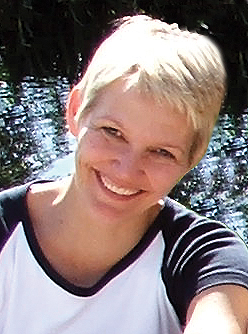 1 What was the most important development in the Estonia's film industry over the past year?
1 What was the most important development in the Estonia's film industry over the past year?
Coping with the economic crisis has been quite a struggle for the whole country. This situation is also connected to Estonia joining the Euro zone. This also applies to the film industry. There have been serious budget cuts in state financing of films for last 2 years. The good news is we are recovering now and hope to be in better shape soon. With a population of 1,3 million, we produce 3-4 feature films every year, and the industry is developing accordingly. As in many countries, the producers have turned to lower-budget films, so bigger projects have had to wait their time.
The positive reception of Estonian films at international festivals that started in 2007 is still visible, our films are screened at many festivals and they receive positive reviews. As a positive trend, Estonian documentary film discovers and treats subjects that are interesting for our own audiences as well as abroad: they receive good audience numbers in Estonian cinemas; internationally they are mostly screened at festivals.
CANNES: Belarussian born documentary director Sergei Loznitsa's first venture into feature film was 10 years in the making. He has based his story on his own travels around provincial Russia over the past decade which has seen a time of tremendous change and upheaval in Russia. But it is hard to accept the joyless, brutal world he portrays in this ironically titled film.
CANNES: French director Xavier Beauvois gives us one of the strongest competition entries from France in several years with Of Gods and Men. The film is based on the true story of seven French Catholics monks in Tibhirine, Algeria who were kidnapped and killed by Islamic terrorists. The monks become martyrs and the film examines their selflessness and piety. It also tackles the theme of the conflict between Islam and Christianity in a thoughtful way.
CANNES: Hungarian director Kornel Mundruczo's Tender Son - The Frankenstein Project was a late entrant to the Cannes competition lineup and perhaps it was meant to inject an element of controversy into the competition. The film is definitely central European and its inconceivable it could have originated from anywhere else with its bleak and heavy feeling and mood. Mundruczo has already proved his ability as a master of visual display in his previous film, Delta, and Tender Son delivers on this front with full force. Whether or not the script lives up the same standards of is earlier work is a question that is surely to be hotly debated.
CANNES: The Exodus - Burnt by the Sun 2 is Russian director Nikita Mikhalkov's sequel to his Oscar winning 1994 Burnt by the Sun which also won the Cannes grand prix. It's a tough act to follow but Mikhalkov has made a serious effort. While the first film relies on intense exchanges in a Russian dacha that brilliantly portray the underlying tension and tragedy of the Stalin terror, this sequel is full of non-stop action and epic battle scenes of the Great Patriotic War, otherwise known outside Russia as World War II.
CANNES: Director Mike Leigh's reflection on the passage of time, ageing, loneliness, and life will stand as a work alongside his best films such as Vera Drake and Secrets and Lies as a work that is both profound, and, well, ordinary.
This week FNE will be looking at a small country that has managed to make a serious impact on the European film industry. As Estonia prepares to host the European Film Academy Awards this December and embrace the Euro in 2011 we catch up with what is going on in Estonian film today.
In recent years Georgian cinema has been witnessing a period of rebirth and revival. Yet another generation of filmmakers emerged, and the directors who stopped making films in the 1990s returned to the country. Financial support from the state and private industry has helped. Georgian cinema has appeared on the international arena and continues to attract the interest of the international film market.
Georgian cinema has a long and distinguished history but it has also become in recent years a vital new source of young European filmmaking talent and an important partner for European coproducers.



















